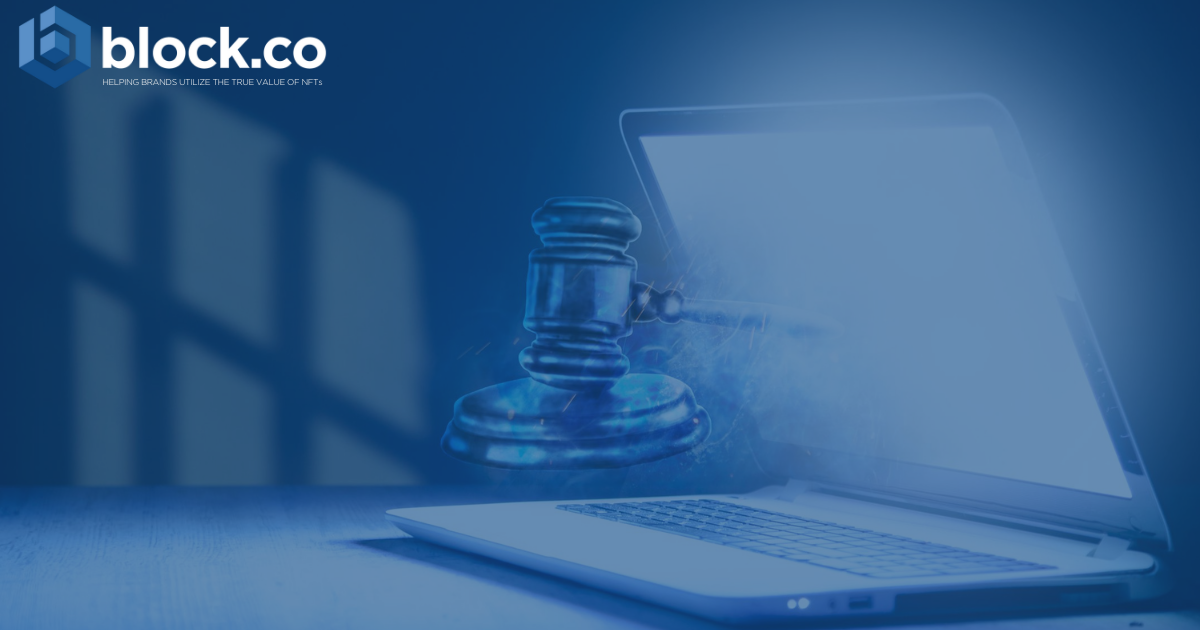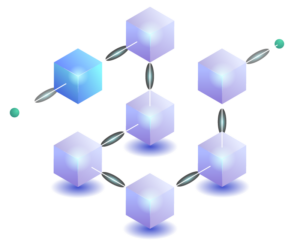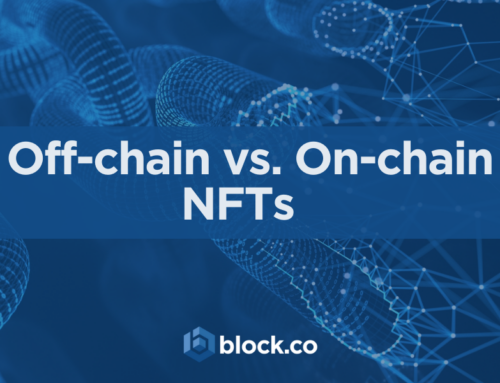Webcast Insights — Blockchain for the Legal Industry: How is the Coronavirus Crisis Making Adoption More Imminent?

Notoriously, the legal industry has always been slow at following technology innovations and adjusting to up to date digitally performed processes. By tracing the different steps of the legal industry evolution, we find that Kleroterion was a sophisticated innovative system used in ancient Athens that allowed citizens to participate in the lawmaking process by a random selection of jurors, as a way to circumvent manipulation and corruption of the system. Modern justice systems, established in the 17th and 18th centuries, provided regulations for the new industrial and economic development. However, with the start of the 21st century, they began to show their limits mostly within their structure built on papers.
The advent of the internet further highlighted these cracks, even though there have been signs more recently that times may be mature for disruptive technologies to finally enter the legal space too. The EU and its member states like Estonia, along with the US, Australia, China, have been pioneers in developing advanced Information Technology systems that led to the creation of an e-justice structure. They paved the way to other countries to embrace Blockchain, Artificial Intelligence, and the Internet of Things, which are now identified as the best technologies enabling a more efficient, secure and faster legal system worldwide. In Estonia, e-filing was first considered back in 2005 and since then it’s been developed to become a central point for the exchange of information between authorities, from the police to prosecution offices, courts, prisons, tax and customs board, lawyers and citizens. Thus saving money and time by reducing the entanglements of bureaucracy.
In Canada, the cases of British Columbia and Ontario set as examples for exploring the electronic documentation system as opposed to paper, already back in 1996. Initially it brought to little implementation due to the high costs, scaling, and complexity of the matter at the time. It was only in 2009 that Ontario’s Ministry of the Attorney General approved $10 million in funding to create a system intended to permit enhanced functionality such as e-document management, court scheduling, financial and automated workflow capabilities, and the introduction of online services to the public.
British Columbia’s case was more straightforward than Ontario. In the early 2000s, the Canadian Court Administrative Technology Suite drafted a program to integrate a system of connection of e-documents between law offices, the registry, the judicial, and the courtroom. It would include e-Courtrooms, provided they had implemented e-court files and links to the civil and criminal court information systems.
In the last couple of years, along with electronic improvements to the legal system, countries have looked at ways to use blockchain smart contracts in disputes, ownership of intellectual property, and any time of the agreement, to save money and time while offering more reliable and secure processes.
In the first webcast around blockchain technology, its impact on the world and the benefits it may bring to society, BLOCK.CO CEO Alexis Nicolaoudiscussed the legal industry and its reaction to the current coronavirus crisis with two prominent guests, legal practitioners Christiana Aristidouand Yiannos Georgiades.
Both members of the Cyprus Bar Association (and the Cyprus Blockchain Association), Christiana Aristidou has her own legal practice as Christiana Aristodou LLC, she is the Co-founder and Vice President of the Cyprus Blockchain Association, an International Business and Technology Lawyer and an ISO/TC 307 Blockchain Committee National Delegate. Yiannos Georgiades is a Commercial and Corporate Lawyer, also the founding partner of Georgiades & Associates. Yiannos is also a member of the Law Society in the UK as a European Registered Lawyer, and President of the Cyprus Chapter of the European Court of Arbitration and Mediation for commercial disputes (CEAM).
Christiana was first introduced to Bitcoin while studying for a degree in technology law at the Queen’s Mary University of London in 2009. “The white paper was given to us by our professors for study,” recalls Christiana. “The fact that it had just been invented made me more curious about it. When Ethereum and its smart contracts were launched in 2014, I realized the tech could have a real disruptive nature, especially with regards to trust. As lawyers, we base legal services on trust. Then, you can imagine how relevant this tech had become for me”.
Nowadays, blockchain is in 2020 top tech trends and the first of LinkedIn’smost in-demand hard skills for 2020. “Compound annual spending growth for blockchain is established in the range of 62% during the years from 2018 to 2023, led by the banking industry followed by manufacturing, process manufacturing, and professional services -continues Christiana- Why these industries? Because they are distinctively transactional industries and blockchain, of course, disrupts transactional businesses”.
“In relation to the current Covid-19 situation, the first semester of 2020 has revealed a strong increase in the use of the technology, therefore it may have contributed to its adoption but its growth this year was already predicted, regardless of the crisis ”.
Coronavirus has promoted the necessity for companies to further investigate digital work to satisfy future demand for a remote working style.
How could the judicial system become more efficient with the adoption of advanced technologies?
Yiannos believes that “Due to the current restrictions everyone rushed to use the existing technology. Those who already used it did not have a problem in adapting, the others just realized how important and urgent it has become to be more digitized.
Introducing e-justice in our lives will reduce costs, time, it will safeguard security, establish transparency, and the authenticity of transactions. We can also reduce the disputes by introducing e-justice together with blockchain through smart contracts”.
In line with the progress made within the EU e-justice system, Cyprus Minister of Justice, Mr. George Savvides, wants to introduce e-justice in the frame of other reforms, supported by Deputy Minister of Research and Innovation Mr. Kyriakos Kokkinos.
Meanwhile in China, three provinces have introduced blockchain within their judicial system highlighting the reduction of the carbon footprint as one of the benefits since physically traveling to the courts would be avoided.
“China is a pioneer in the introduction of e-justice combined with blockchain. Some courts developed their own platforms and introduced the first internet court as an incubator to develop and implement it in the normal physical courts and using blockchain as a way to authenticate documents was so useful during the coronavirus crisis” — continues Yiannos.
Yiannos is also co-founder of the Metropole Alliance, the European association of lawyers.
“There is a strong collaboration among members to promote e-justice via education. Every member country can influence their own local authorities to implement e-justice as fast as possible. The EU has committed to speed adoption of the technologies for over a decade and as the world becomes more digitized, now is the time to implement them in the legal system also. Validation of documentation through blockchain would make processes faster and would be a real benefit for justice”.
Christiana believes that remote work is here to stay, it’s one of the crucial steps to business digital transformation and needs to be implemented strategically and seen as a part of a whole plan.
“Home office and cloud are not enough, we need to make sure that all systems allow us to stay connected in remote and not remote with instant communication, and be able to track work progress continuously. The ability to develop new leadership skills becomes another factor in times like these. Leaders should further improve the way they relate to their teams, they need to be able to identify talents, technical skills, the personalities of teams, they’re all important aspects of our projects.
Lawyers should also start learning how technologies like blockchain, AI, and IoT can improve our services. My advice is to partner with companies like Block.co because it helped me serve my clients more securely and efficiently. Before blockchain and Block.co, registering intellectual property was a lengthy, tedious, and tiresome process. Witnesses were needed, declarations of every movement were required and legal documentation ended up being kept in a fireproof safe corner of the office. I don’t do that anymore because Block.co simply gives me a hash and that way the intellectual property and the copyright owner are protected forever on the blockchain”.
Yiannos reinforces the concept: “As a company, we are doing well due to another crisis that made me wiser. A few years ago we were victims of electronic fraud when our emails were hacked and attackers asked for money from our clients. One client alerted us whereas another did not and paid the money to the hackers. So I decided to improve our security and look at ways to tackle the issue digitally. We were also victims of a ransomware attack but it turned out to make me more aware and educated about security. That was the time I learned about bitcoin as those hackers wanted some BTC to unlock our server”.
While full implementation of blockchain in the legal system is still regarded with skepticism by many lawyers that believe it will take some of their work away, Yiannos reckons it will actually be an opportunity to access new and increased streams of revenues. “Lawyers can easily generate money by learning how to transform normal contracts and codify them into smart contracts” while Christiana points out that “In a blockchain-based future, enabled by the Internet of Value, lawyers will be service providers on a programmable society infrastructure”.
Don’t miss Block.co next webcast regarding Blockchain in Education: Remote Learning, Social Distancing, and the Certification Case. Professor George Giaglis and Dr. Maria Papadaki join forces to discuss the quickly changing education industry, and the measures taken towards remote learning, social distancing, and blockchain. Join us for a free 60-minute session, moderated by Catalina Castro (Tech con Catalina), a specialist in cryptocurrencies, Bitcoin and open blockchains, with two highly distinguished experts in the educational industry ecosystem.
To register, click here.
If your brand is ready to take the step into web 3.0 and NFT marketing, to optimize engagement with your audience in innovative ways, then click the button below to get your Free Trial, a limited number of Free NFTs, and a Free Consultation call from our team!
For more info, contact Block.co directly or email at enquiries@block.co.
Tel +357 70007828
Get the latest from Block.co, like and follow us on social media:







